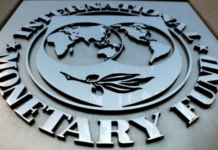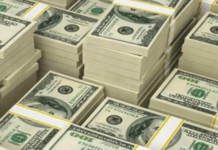There is a bit of a complication; if interest on deposits increases, interest on loans must also increase
In a conversation at a branch of Dhaka Bank on Thursday, Sayful Islam, a small trader (depositor), told Prothom Alo that he had never seen such an unjust situation before.
“The government maintains a reduced interest rate on deposits. On the flip side, it has raised the price of all commodities by hiking the fuel oil prices,” he explained.
The economic survey for 2022 mentioned 14 different types of deposits in the banks. Of them, the fixed deposit receipt (FDR), which ranges from three months to more than three years, composes the largest portion of deposit in a bank.In April 2020, the central bank fixed the deposit interest rate at a maximum of 6 per cent. Accordingly, the average interest rate of deposits in banks was 4.07 per cent in August.
The actual interest rate is what is left after subtracting the interest rate on deposits from the rate of inflation. In this sense, the depositors are losing 5 per cent of their savings deposited in the banks.
Bangladesh Bank spokesperson GM Abul Kalam Azad told Prothom Alo that some steps have already been taken to control inflation. He could not say anything about the role of the central bank in raising the interest rate on deposit.
The top officials of several private banks said they want the interest rates on deposits and loans to increase
The central bank issued a notification in August last year, saying that the interest rate on deposits of three months to above cannot be lower than the rate of inflation. It also asked the banks to take into account the average inflation rate of the previous three months while fixing the interest rate.
The banking sector regulator also warned the managing directors of banks and said a drop in interest rate might have a negative bearing on overall deposit, which is the prime source of funds for the banks.
The amount of deposits decreased in the last two months is not yet disclosed. However, according to the data of Bangladesh Bank, the growth of deposits in the banking sector was 13.8 per cent in June 2021, which slowed down to 9.35 per cent in June this year.
The top officials of several private banks said they want the interest rates on deposits and loans to increase. However, the Association of Bankers, Bangladesh (ABB) and the Bangladesh Association of Banks (BAB) are not negotiating the issue effectively with the authorities.
ABB Chairman Selim RF Hussain was contacted over the phone for his statement in this regard, but he ended the conversation just saying, “I am abroad now.”
Sonali Bank Managing Director Afzal Karim said the inflation rate is showing a decreasing trend and this is why a notification may not be issued as before. There is a bit of a complication; if interest on deposits increases, interest on loans must also increase.
Anis A Khan, former chairman of ABB, said, “The purchasing power of people has decreased due to the inflationary pressure, it can easily be understood after going to markets. Almost all countries, including India, the United States, England, have increased the interest rate on deposits to control inflation. But we have been stuck in the same place.”
Keeping savings in banks is now loss-making due to inflation as the amount received as interest is taxed again, he added.










